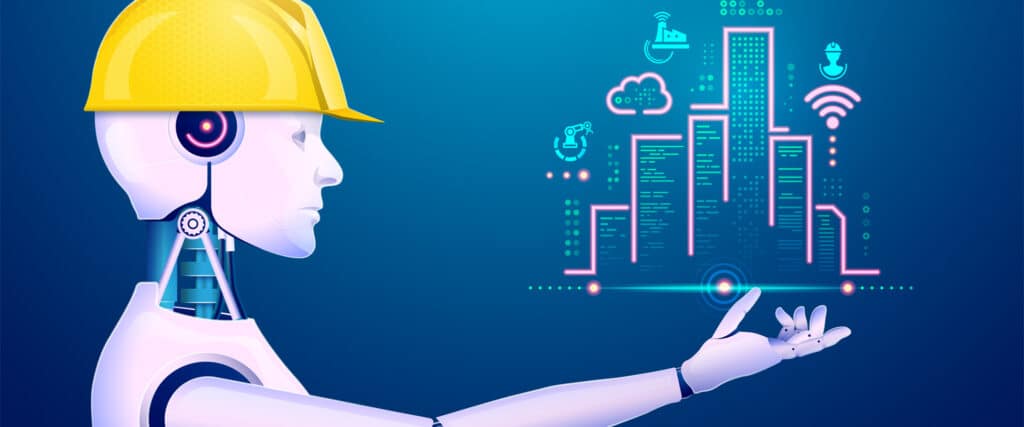The impact of AI on industry

Artificial intelligence (AI) is undoubtedly reshaping the fabric of various industries, altering traditional methodologies, optimizing processes, and setting new benchmarks for efficiency and innovation. This transformative technology is paving the way for unprecedented advancements, offering businesses opportunities to leapfrog their competition and innovate in ways previously unimaginable.
In this exploration, we delve deep into the realms where AI's impact is most profound, examining its effects on manufacturing, healthcare, finance, customer service, and beyond. As we traverse these sectors, it becomes evident how integral AI has become to our professional and daily lives, underlining the necessity for industries to adapt and embrace this technological revolution.
Revolutionizing Manufacturing
The manufacturing sector has seen a significant overhaul with the integration of AI. Smart factories, driven by AI algorithms, are optimizing production lines, reducing waste, and achieving higher levels of quality control. Predictive maintenance powered by AI is minimizing downtime and extending the lifespan of machinery, exemplifying how AI is not just an add-on but a fundamental shift in operational philosophies.
Robotics, augmented with AI, are undertaking tasks with precision beyond human capabilities, working alongside humans to enhance productivity and safety. The customization of products has reached new heights, with AI enabling a more flexible production approach to meet individual customer demands.
Furthermore, supply chain management has been refined by AI's predictive capabilities, ensuring more efficient inventory management, reducing costs, and improving delivery times.
Transforming Healthcare
In healthcare, AI is making strides in diagnostic processes, patient care, and personalized medicine. By analyzing vast datasets, AI algorithms can identify patterns and predict outcomes, leading to early diagnosis and tailored treatment plans. This precision reduces the trial and error associated with traditional approaches, potentially saving lives and cutting healthcare costs.
AI-driven robotics are performing surgeries with a level of accuracy that minimizes risks and improves recovery times. Virtual health assistants and chatbots are providing patient support, reminding them of medication schedules, and offering medical advice, making healthcare more accessible.
The development of new drugs is being expedited through AI models that can predict the effectiveness of compounds, significantly shortening the R&D cycles and bringing lifesaving medications to market faster.
Enhancing Customer Experiences
Customer service has been transformed by AI through the use of chatbots and virtual assistants, providing personalized support 24/7, reducing wait times, and increasing customer satisfaction. These AI tools learn from interactions, constantly improving their ability to solve problems and answer queries more effectively.
Data analysis through AI is offering businesses deep insights into customer behavior, preferences, and trends, enabling them to offer more tailored products and services, thereby enhancing the customer experience.
Moreover, AI is facilitating the creation of more intuitive and engaging user interfaces, making digital platforms more user-friendly and enhancing the overall user experience.
Revitalizing Finance
The finance industry is leveraging AI to bring about more secure, seamless, and personalized banking experiences. Fraud detection systems powered by AI are becoming more adept at identifying and preventing fraudulent activities in real-time.
AI-driven algorithms are assisting in wealth management, offering personalized investment advice based on individual risk profiles and financial goals, democratizing access to financial advice.
Moreover, operational efficiency within financial institutions has seen a boost with AI, automating routine tasks, ensuring compliance with regulations, and offering customers faster, more reliable services.
Accelerating Research and Development
AI's ability to process and analyze vast amounts of data is accelerating research and development across various fields, from environmental science to engineering. This rapid analysis leads to faster breakthroughs, more innovative solutions, and a deeper understanding of complex issues.
Furthermore, AI is facilitating the design of more sustainable products and processes by optimizing resource usage and reducing waste, contributing to a more sustainable future.
AI's Role in Education
The impact of AI on education is profound, personalizing learning experiences for students, adapting to their learning pace and style, and providing immediate feedback. AI-powered platforms are enabling educators to identify and address students' weaknesses more effectively, improving learning outcomes.
Moreover, AI is broadening access to education, breaking down geographical and financial barriers, and providing learners worldwide with quality educational content.
Challenges and Ethical Considerations
While the benefits of AI in industry are vast, it is crucial to address the challenges and ethical considerations that accompany its deployment. Issues of privacy, security, and the potential for job displacement demand careful examination and proactive measures to ensure that the integration of AI remains beneficial and equitable for all.
Developing regulatory frameworks and ethical guidelines that keep pace with AI advancements is essential to harnessing its potential while safeguarding against risks.
Conclusion
The influence of AI across industries marks a pivotal shift in how businesses operate and innovate. Its capacity to transform complex data into actionable insights, drive efficiency, and foster new forms of creativity is unparalleled. As industries continue to adapt and integrate AI into their operations, the focus must also be on addressing the challenges and ensuring the ethical use of this powerful technology. Embracing AI not only propels industries forward but also contributes to societal advancements, underscoring the importance of navigating this technological evolution with wisdom and foresight.

Related